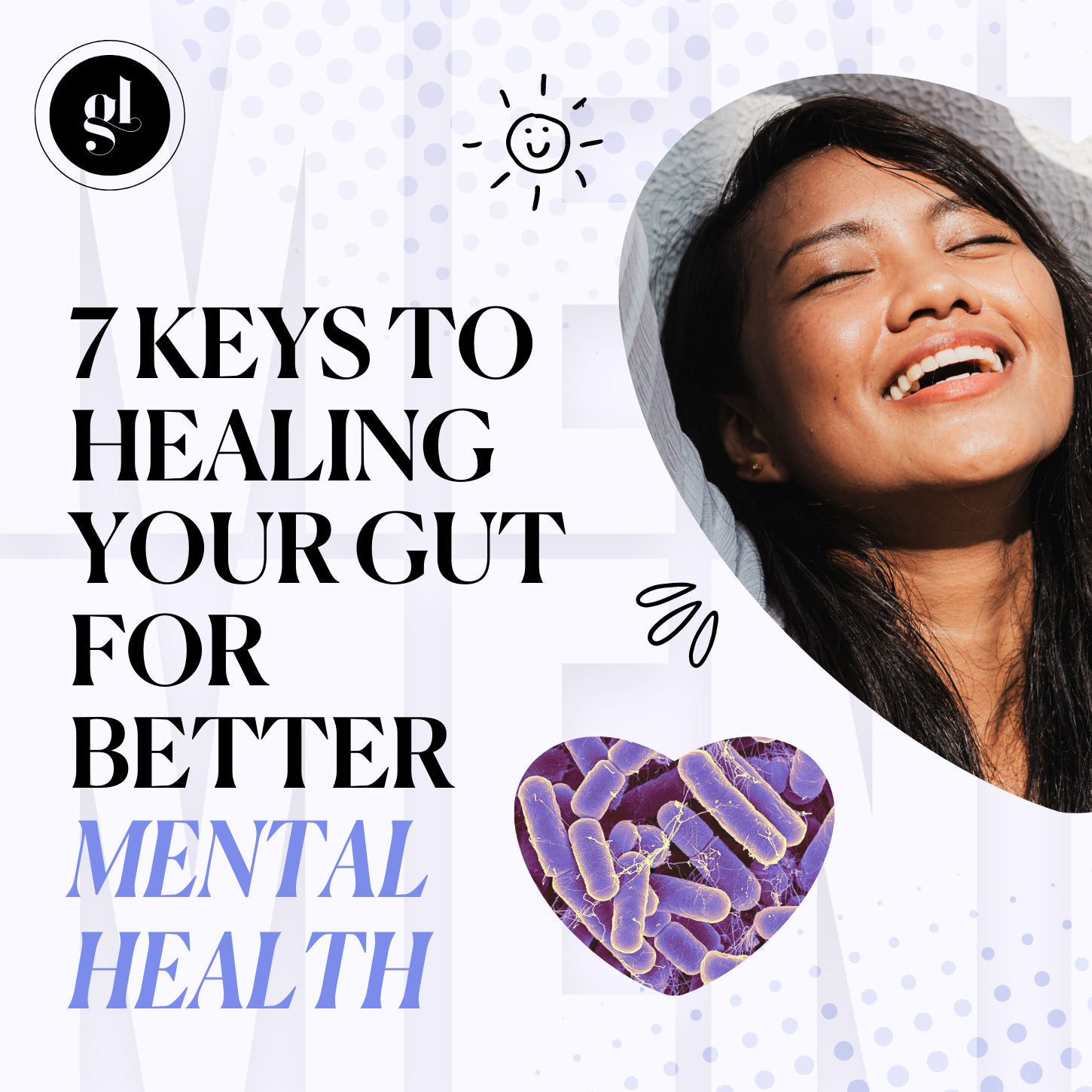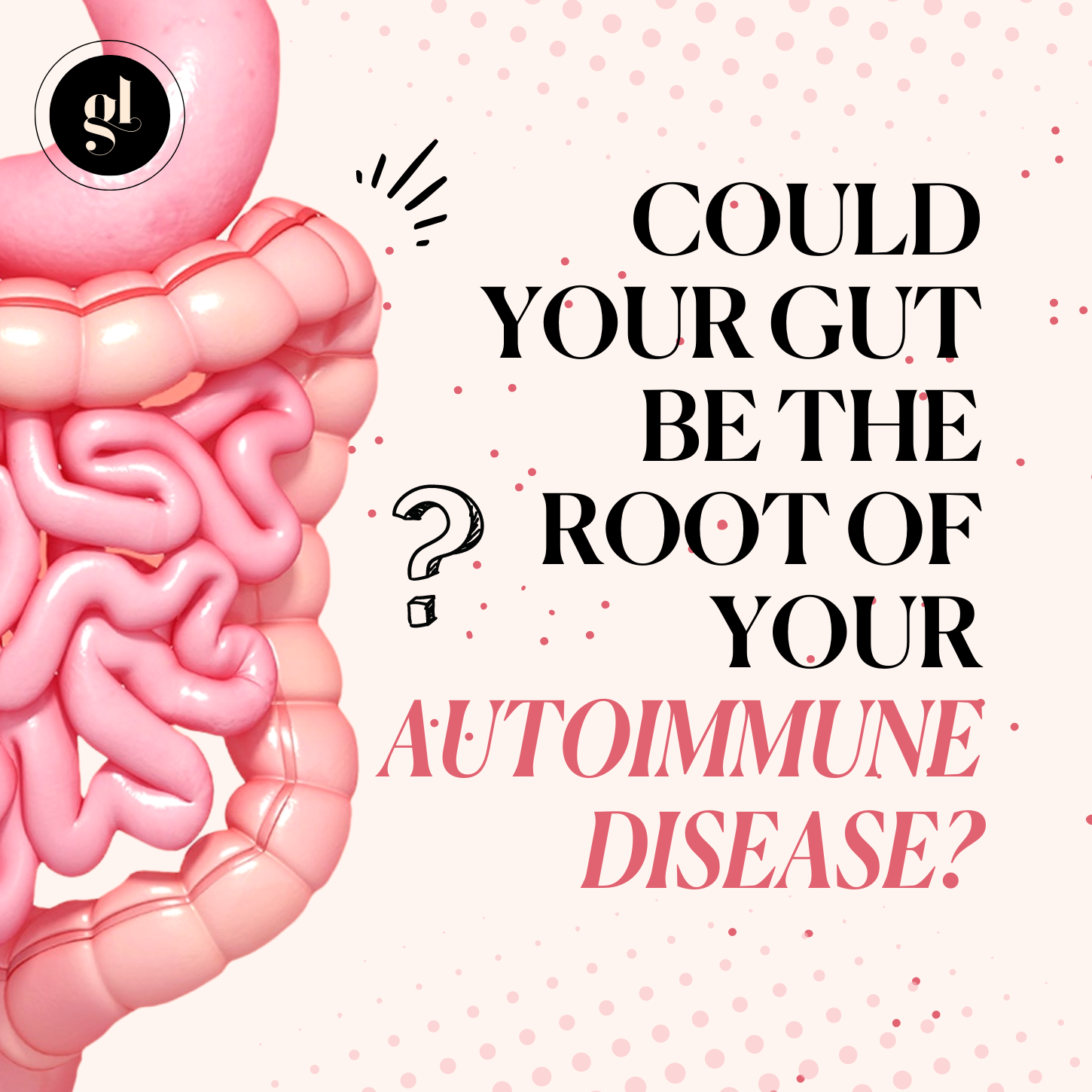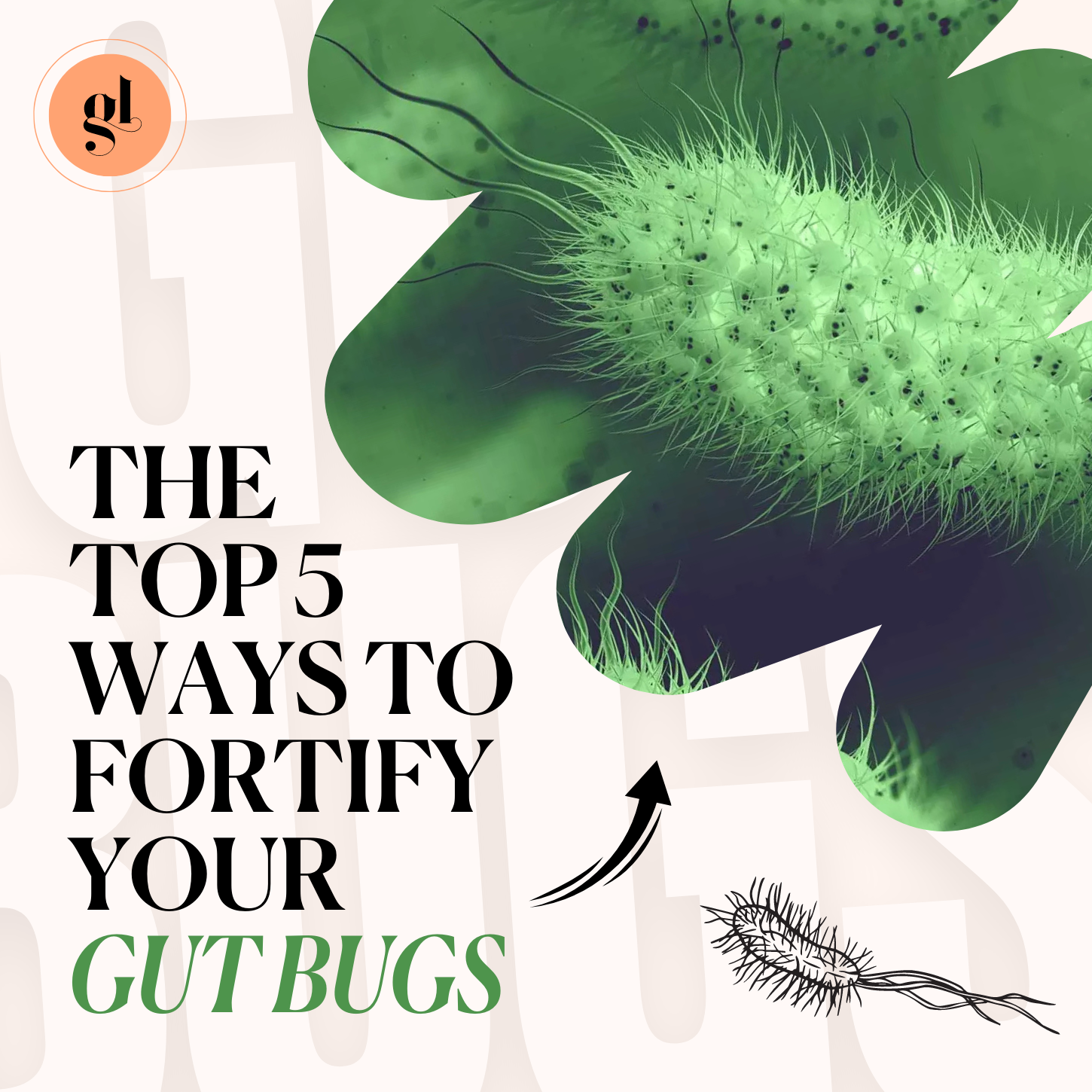Transcript: 7 Keys to Healing Your Gut For Better Mental Health
When it comes to making those big decisions in your life, is it your mind, your heart or your gut that calls the shots?
While they sometimes seem to be in conflict with one another, at a physiological level, they may have more to do with each other than what you first think.
In the last couple of decades, science has discovered an important link between your gut and your nervous system, earning your gut microbiome its nickname as the second brain!
Since then, many links have been drawn between mood disorders and gastrointestinal-relatedisorders.
This phenomenon has become known as the “gut-brain axis.”
Physiological activities we thought occurred in the brain, have now been found to occur largely in the gut.
For example, did you know more of your neurotransmitters are produced in the gut than in the brain!?
In fact, 90% of serotonin, “the happy hormone” is produced in the gut! Half of your dopamine, your pleasure hormone, is produced in the gut too!
This relatively new area of research has shown us that in order to support your mental health, it’s also essential to support your gut health. And this is what I bet your doctor didn’t tell you when he prescribed you that antidepressant.
So if you’re wondering what you can do to support your gut-brain axis, wonder no more. I want to share with you the 7 most important things that you can do for the health of both your gut and your brain.
Number one: reduce intake of dietary stimulants, including coffee and alcohol as they actually contribute to an anxious state.
This one may be difficult for some of you but let me tell you why it’s important. By blocking adenosine, caffeine lets those excitatory neurotransmitters that stimulate the brain, move about freely. This leads to an increase in neuron firing and the pituitary, in turn, releases hormones that stimulate the production of adrenaline. Adrenaline can make you feel more jittery and increase your heart rate, blood pressure and blood sugar levels.
Number two: it’s also best to avoid refined carbohydrates.
Ensure you’re consuming a sufficient amount of complex carbohydrates and fiber such as fruits and vegetables, legumes and whole grains. This will stabilize your blood sugar and feed those good bugs that keep your gut in balance.
Number three: protein, protein, protein.
You want to be aiming for approximately a palm-sized portion of protein at each meal to provide you with the amino acids such as tryptophan needed to support healthy mental function and overall well-being. Tryptophan is the precursor to serotonin, your happy hormone. And before you go reach for that hunk of meat, let me tell you that the science is pretty clear that plant-based protein is superior and animal protein can wreak some serious havoc on your health and wellbeing.
Number four: increase your intake of omega-3 fatty acids.
They help to reduce inflammation and thus reduce symptoms of anxiety and depression. They also help to increase the production of important neurotransmitters like dopamine and serotonin. Omega 3s are found in foods such as walnuts, avocados, chia seeds, flaxseeds and hempseeds.
Number five: who likes foods sauerkraut, kimchi or kombucha?
These and other fermented foods as well as prebiotic fibers increase the production of short chain fatty acids and anti-inflammatory cytokines, both of which support your microbiome health and your mental health.
Number six: it’s important to increase your intake of foods rich in folate and B vitamins.
They are needed for the synthesis and metabolism of neurotransmitters. Deficiencies in these nutrients are linked to mental health issues. These foods include leafy greens, legumes, nutritional yeast and fortified foods such as cereal and soy milk.
Number seven: and last but not least, increase your intake of magnesium-rich foods.
Magnesium is required to control inflammation, reduce nervous tension, mood swings, irritability, manage stress and support a healthy sleep cycle. Include more dark leafy greens, nuts especially cashews and almonds, seeds, beans, whole grains such as quinoa and buckwheat, avocadoes, bananas and cacao.
Now before you go, I want to share with you how your gut health not only affects your mental health but also your immune health, specifically autoimmunity.
The thing is, despite growing evidence that shows that poor gut health can trigger an autoimmune reaction, gut health is rarely addressed if you have an autoimmune disease such as lupus, Hashimoto’s or rheumatoid arthritis.
So how exactly does your gut put you at higher risk of developing autoimmune disease and why is it not being addressed? Click on this video here to find out.














What Do You Think? Comment Below: